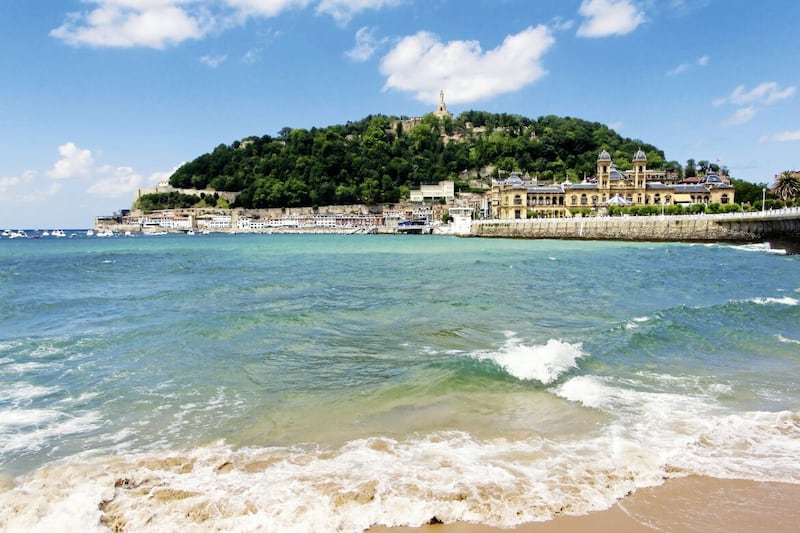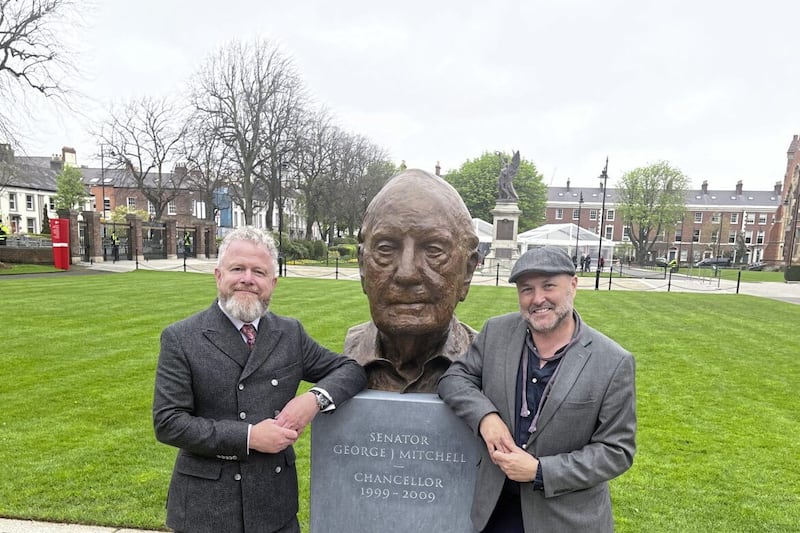ON the afternoon of last week’s ‘glorious’ Twelfth, I found myself on a guided cycle tour of the beautiful Basque city of Donostia San Sebastián, close to the French border in northwest Spain.
The French influence is important because Donostia’s modern lay-out and many of its beautiful buildings and squares were heavily influenced by the French capital, Paris.
It does, in places, have a Parisian feel to it. Donostia has a number of advantages over Paris though.
It’s much smaller; it has an older town with narrow streets full of bars, and restaurants centred around Constitution Square, which feels like a mini St Mark’s in Venice.
It’s relatively cheap; is utterly devoid of all pretension and lastly; it has three stunning, city beaches and a small harbour, all of which make it a very special place to visit.
My cycle trip was supposed to be a group tour but I was the only one who’d booked into the afternoon slot.
My darling wife didn’t fancy the cycle but did manage a boat trip to Santa Clara island in the bay and she hired an electric scooter and probably saw more of the city than I did!
Read more:
- Patricia MacBride: Young people in Ireland or the Basque country recognise the importance of language rights
- Brendan Mulgrew: The business of sport

So, the tour was just me and my excellent ‘Go Local’ guide, Alba.
Alba is an art history graduate, but there was no part of the general history, economy, culture and architecture of Donostia and the Basque Country she wasn’t an expert on.
She knew plenty about Belfast and the history of this place also. It couldn’t have been a better tour, I even got to play Pelota, the very popular Basque wall sport similar to handball.
I wasn’t very good and Alba won the one point we played!
The day before the Donostia tour, I went to the iconic Guggenheim museum, which is widely credited with the start of the regeneration of the largest and best known of the Basque cities, Bilbao.

There is clearly some rivalry between Donostia and Bilbao. Alba was proud of the fact that Donostia’s soccer team, Real Sociedad, placed higher (fourth) than Athletico Bilbao (eighth) in this year’s La Liga’s final standings.
I also got to see Real’s new 39,000-seater stadium, the Reale Arena, completed in 2019. It’s very impressive and needless to say, I had Casement on my mind when I was looking at it.
Obviously, Alba and I spoke about Basque nationalism and the history of Spain, some of the Donostia’s buildings still have the scars of the Civil War, but we talked more about the future and the economy in particular.
The Basque Country is consistently one of the best performing regional economies in Spain (and indeed the whole of the EU), with GDP per capita around thirty per cent higher than the national average, with usually the lowest unemployment rates.
After, I did a bit of checking and read an economic paper from the Blavatnik School of Government at Oxford University* on how Bilbao and the Basque economy had become such a powerhouse.
The paper identifies several factors, including common enough things like refocusing toward the knowledge sector and an emphasis on skills.

What the Basque government didn’t do though was move away from its traditional industries, it invested in them and the creation of the Basque Institute for vocational guidance, to develop and re-skill the workforce was a first in Spain and is seen as an exemplar across the EU.
The paper, which would be worth a read by policy makers and private sector groups here, also identifies something that we could improve on: a common purpose.
Alba was a good example, she is rightly proud and confident about her country, even though it doesn’t have the independent status she would like it to have.
It always amazes me that the DUP don’t push the economy harder here, surely the case to remain part of the Union would be better made if this region was its best economic performer, not its worst?
The negative sentiment (for unionism) of a net cost to UK exchequer finances of circa £11bn a year, massively undermines the case for the union and narrows any basis for support from many people in England, in particular.
The Basque Country, according to Alba, is a net contributor to Spanish central government finances.
What I do think exists now though, in a growing way – amongst people of a unionist and nationalist persuasion in the business community, is a collective will to do better.
There is some embarrassment about our current performance, and a fair bit of determination to improve the economy here, by building businesses that can compete and win across the world, irrespective of arguments about our constitutional position.
There are plenty of good examples in both emerging businesses and some of our more traditional sectors.
It’s just important now that we get another factor identified in the Oxford paper as being crucial to the strong economic performance of the Basque Country, a functioning regional government, restored here.
Last thing then, if you can go to the Basque Country for a visit, you should and if you do, use the Basque phrase for thanks instead of ‘gracias’. It’s ‘eskerrik asko’.
Paul McErlean is chief executive of MCE Public Relations







